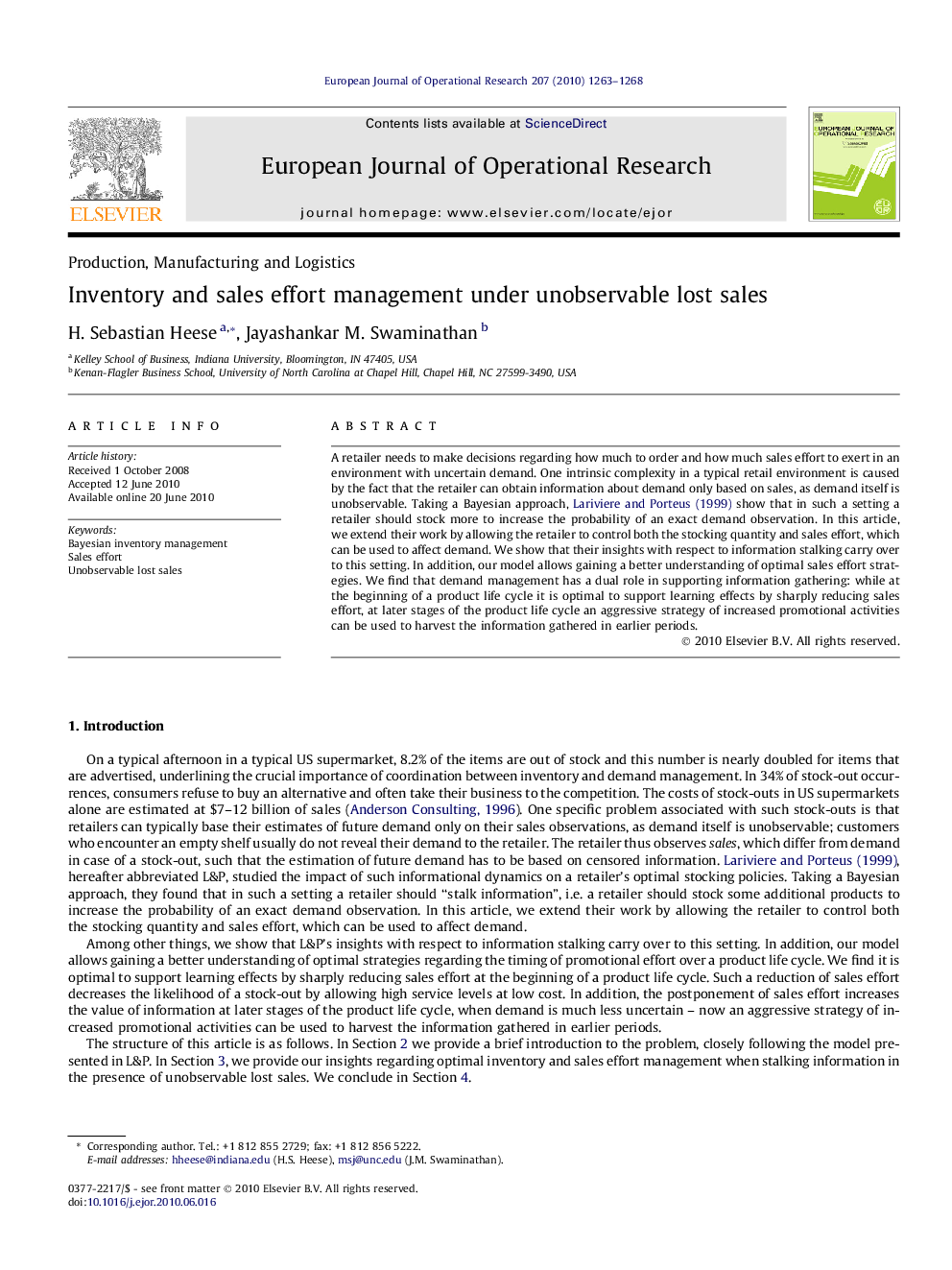| Article ID | Journal | Published Year | Pages | File Type |
|---|---|---|---|---|
| 6898700 | European Journal of Operational Research | 2010 | 6 Pages |
Abstract
A retailer needs to make decisions regarding how much to order and how much sales effort to exert in an environment with uncertain demand. One intrinsic complexity in a typical retail environment is caused by the fact that the retailer can obtain information about demand only based on sales, as demand itself is unobservable. Taking a Bayesian approach, Lariviere and Porteus (1999) show that in such a setting a retailer should stock more to increase the probability of an exact demand observation. In this article, we extend their work by allowing the retailer to control both the stocking quantity and sales effort, which can be used to affect demand. We show that their insights with respect to information stalking carry over to this setting. In addition, our model allows gaining a better understanding of optimal sales effort strategies. We find that demand management has a dual role in supporting information gathering: while at the beginning of a product life cycle it is optimal to support learning effects by sharply reducing sales effort, at later stages of the product life cycle an aggressive strategy of increased promotional activities can be used to harvest the information gathered in earlier periods.
Keywords
Related Topics
Physical Sciences and Engineering
Computer Science
Computer Science (General)
Authors
H. Sebastian Heese, Jayashankar M. Swaminathan,
